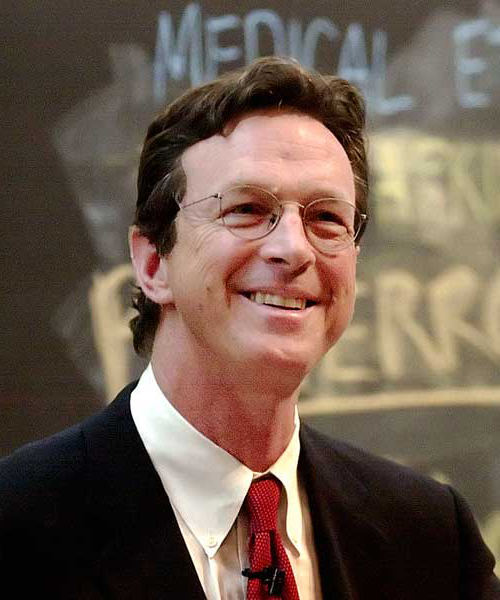

Spotlight on Michael Crichton's Teaching Career
In His Own Words
It’s hard to decide who’s truly brilliant; it’s easier to see who’s driven, which in the long run may be more important.
Do you want to understand how to swim, or do you want to jump in and start swimming? Only people who are afraid of the water want to understand it. Other people jump in and get wet.


Teaching Anthropology at Cambridge University
In 1964, after graduating from Harvard University and before starting medical school, Michael Crichton taught an anthropology course at Cambridge University called “Evolution of Human Environment.”
In His Own Words
Anthropology, in my way of thinking, is a way of looking at the world. It’s a combination field of many different disciplines. It involves everything from psychology to medicine. I studied physical anthropology which was sort of CSI stuff. For example, one of the things we had to do was identify bone specimens. We would have these quizzes where they’d hand around little bits of wrist bone and you were supposed to say whether it was male or female, left or right, all that stuff. We were trained to identify physical remains that you would find at an archaeological site. That’s one part of anthropology. Another part of anthropology is social behavior and how people interact.


Teaching Writing at MIT
In 1988, Michael Crichton taught a course in writing at MIT. Here is the class introduction taken from the handouts from the first day of class:
A HEARTY AND HEARTFELT WELCOME TO THE CLASS
It’s my fervent and heartfelt desire to welcome you all to this class which I hope will be fascinating and also produce the greatest benefits to you all, certainly if you stick with it, it probably will. Of course I have never really taught anything except a lecture course, and that was in a foreign country many years ago, and they liked it but it was on another subject, anthropology. But I believe this class will be beneficial and exciting to everyone I am sure, and if not I hope you won’t tell anybody.
In our class work, our working methods will include among other things on-the-spot editing, editing of class writing, some on-the-spot writing in class, critiquing of writing and editing, and several other procedures, too, in addition to what we have already named. One of the first things we will attempt to undertake and explain, in the very first session, is the art and method of shortening sentences and paragraphs and getting to the point, being precise, saying it briefly, avoiding redundancy, not saying things twice, etc.
This is a pass/fail class and you are going to have to be a pretty awful dolt and idiot to fail, but nevertheless with great effort and enthusiasm you can manage to do it. One of the easiest ways to fail is to fail to hand in the assignments. Assignments are brief and not very long, but they are expected on the day they are due, or at the very worst the week after. Then again, maybe the week after that, but maybe not, I don’t know yet, you can ask me about the rules for this.
Another way to fail is to pay no attention and to not do the revisions and the exercises. Still another way to fail is to snore loudly in class and annoy the other students. Never attending is also a successful way to fail. Not double-spacing your assignments will not make you fail but it will annoy the teacher and therefore he might humiliate you in class or something, so you better double-space whatever you hand in, and all things considered you better hand it in on time.
In summary you will find this class gives you as much as you put into it, rather like an exercise class or weight lifting class, and you can get a lot of training. If you stick with it, you will find that your strength in these skill areas improves. You will certainly become a better writer.
Michael Crichton
Students and Leaders
In 2005, CSPAN arranged for Michael Crichton to have a wide-ranging Q&A session with High School Students from Cleveland High School in Reseda called “Students and Leaders.”. He gave the students some great advice about writing:
“I learned only two or three things about how to write. The first thing is that it’s a state, as you said, and the way to get yourself in the state is to follow a ritual. If you look at how writers behave, most of them have rituals. Hemingway used to sharpen all his pencils every day. A lot of writers—Jack London, Hemingway, and others—would insist that they do a certain number of words; five hundred words or fifteen hundred words. If Hemingway was going fishing the next day he’d do double the number of words so he could take the next day off. This kind of formal structure is really useful. For most of my life—I’m embarrassed to admit it—but my way of getting into it was I would go in and make a cup of instant coffee and have a cigarette. By the time I had done that I was ready to go. Now, of course, all that’s left is the instant coffee. Anything you do repeatedly will get you there. The other thing I discovered, which is really weird—I used to have writer’s block a lot in my life—I discovered that the real reason why I was blocked was that I didn’t know what I wanted to say. If you sit down before you know what you want to say, that’s worse because now you’re staring at the paper or the computer going, “I don’t know what to say.” So I learned it was easier to decide what you wanted to say before you actually did it. I don’t sit down until I’ve really thought through things, and I’ll think about something to write for a couple of years. You don’t have that luxury in this class, but it’s nice to really make a plan and then sit down and execute it–that helps.”
For Younger Readers
Michael Crichton was always happy to help out his younger readers with information for their homework assignments but as with many great teachers the help was delivered with a smile and a small admonishment. Check out his answers to his young fan’s questions in our For Younger Readers section.
In His Own Words
In response to innumerable requests for personal information useful for writing term papers and book reports, I have compiled the following information. I would like to chide you mildly for not doing the work yourself, but in any case, thank you for writing, and I hope this is helpful.
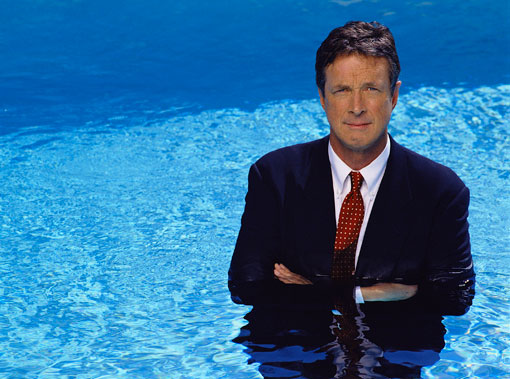

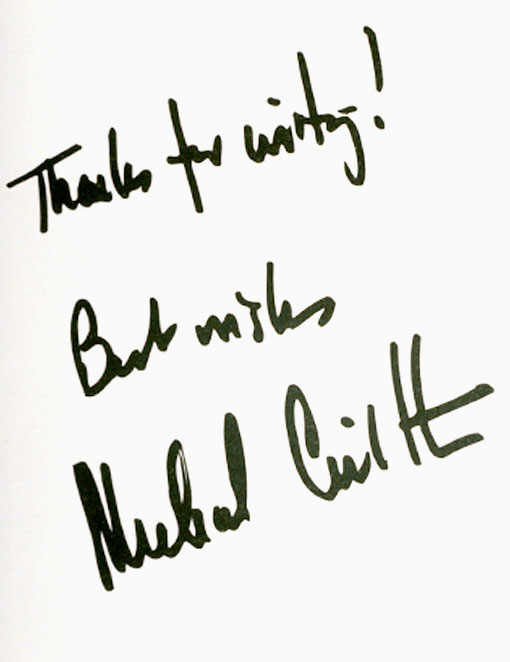

Inspiring New Generations of Readers
Michael Crichton has inspired multiple generations of readers with his classic dinosaur novel, Jurassic Park. This 1993 article in The Washington Post by Maria Odum called “The Power of the Page Turner: Many Find Popular Fiction Can Spark a Young Love For the Art of Reading” gets to the heart of the matter:
No teacher required him to do it. No one bribed him to do it. But 13-year old Danny Hartzog read a thick, complex, scientific novel. On his own.
“It was kind of confusing, but I just kept on reading to see if I could make sense of the words,” said Hartzog, and eighth-grader at Rocky Run Middle School in Chantilly, recalling terms from the book such as deoxyribonucleic acid.
The book was Michael Crichton’s Jurassic Park. And like many other middle-school age children, Danny tackled the heavy-duty read “because of the gore in it,” he said. “Someone told me that a dinosaur rips a guy apart in it, so I just had to read it.”
Learn more in our Jurassic Park Book and Movie page.
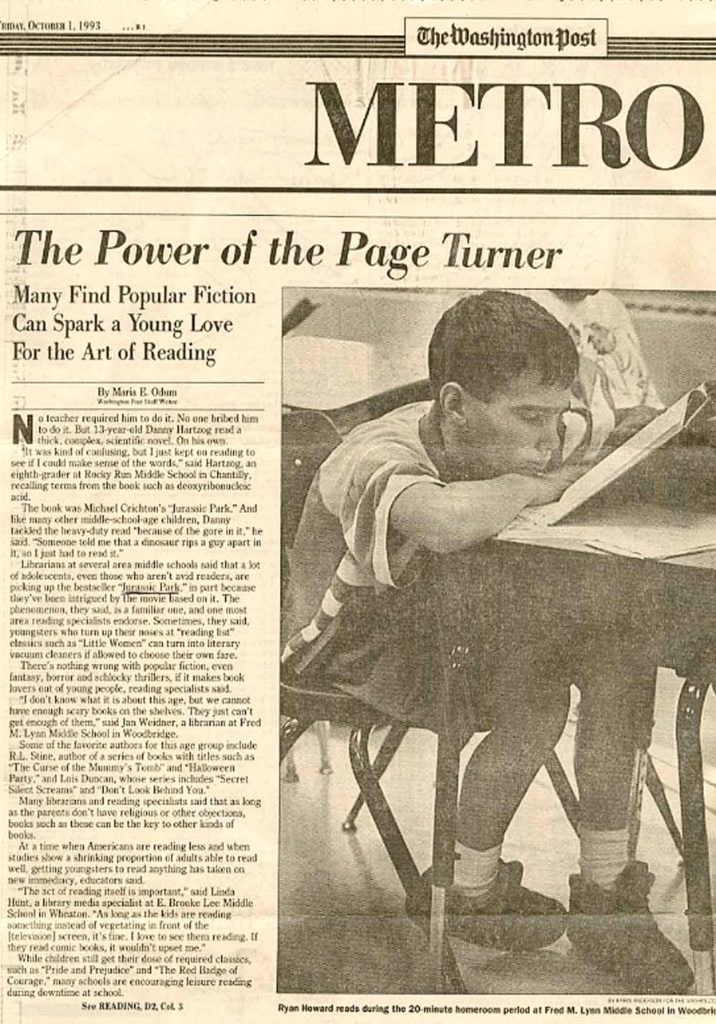

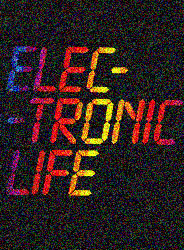

Teaching All of Us about Computers
In 1983, Michael Crichton published a computer manual for new and future computer users called Electronic Life. In it he tries to demystify computer jargon and help readers figure out how to navigate the purchase and usage of this new technology.
